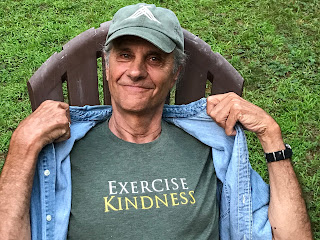What is the locus of a school?
By
Paul Lacey, Retired Earlham College professor
A
Quaker school had a student die in a car crash. It happened over the weekend,
so the news was already known to many students when they arrived Monday
morning. As a faculty member told me, when the students arrived they went
directly to the meetinghouse. I know of no other details: how long they stayed,
whether anyone spoke, whether those who attended felt it "a gathered
meeting." What catches me is that an upper school of students, very few of
them Quaker, many not especially religious, knew without instruction where to go
and what they needed, in a time of grief. The meetinghouse was familiar and
beautiful and they were there once a week for meeting for worship. Knowing so
few details, I might be tempted to make more of it than the participants did.
"See, I told you they remember the school meeting for years to come."
But the event does not require turning into a lesson. May students have not
known any death close at hand. This was the first time they had been together
since their classmate’s death. By habit they went where sitting in silence
allowed fellowship and reassurance in sharing fear and grief together.
At
Earlham, our response to a serious event is either to stand in vigil around the
Heart or to go to the Meetinghouse. On 9/11, we did both. The Vigil was a
public, silent response to our national horror.
What
happened in the meetinghouse was what we always experience in terrible events.
Some people are moved to speak. Many are moved to tears. Someone may begin a
hymn in which we join. We begin the work of channeling anger and sorrow into
strength.
What
happens with us happens in many other Quaker schools and communities. (And in
so many other places, or God help us.) Most of the time, our place of focus is
probably the classroom, the library, the dining room. These are where we do our
most important work, see each other familiarly. If you need to find a
colleague, those are the places you look first. Confronted with tragedy I think
the locus of our deepest experiences together shifts. We practice waiting in
silence to gain the strength we need. The Quaker school that helps its
community to learn and practice the habits of attention, listening and silence
can help them find a deep locus of meaning.


Paul’s writing reminds me of a story related to September 11, 2001.
ReplyDeleteIt was a frenzied day. The Friends school where I worked dismissed early; students and faculty hurried to get home to their families; a few of us remained behind until the last students were picked up. By the time I returned home to my own family and checked in with my adult children who live at a distance, I was emotionally spent.
Then, I got a phone call. It was the parent of a child who was my daughter’s friend in elementary school. We hadn’t spoken in over five years – our daughters off at college had grown apart. This parent asked – “Would the Quaker meeting be willing to have a meeting for worship this evening so people who do not have a faith community could come together?”
Yes – we were able to mobilize enough people in the meeting and school communities and let people know that the meetinghouse would be open for those needing a place of worshipful solace and comfort. It was what we all needed.
In Friends schools we serve many families, “very few of them Quaker and many not especially religious.” Yet, like their children, these parents knew, “without instruction, where to go and what they needed, in a time of grief.” A family’s connection with their child’s Friends school can provide a connection with the life of the spirit, a touchstone to values, ethics, to a sense of “that which is larger than ourselves.” Friends schools help children and families learn practices of reflection and connection, “listening and silence that helps find a deep locus of meaning.”
Thank you, Paul, for reminding us of this gift.